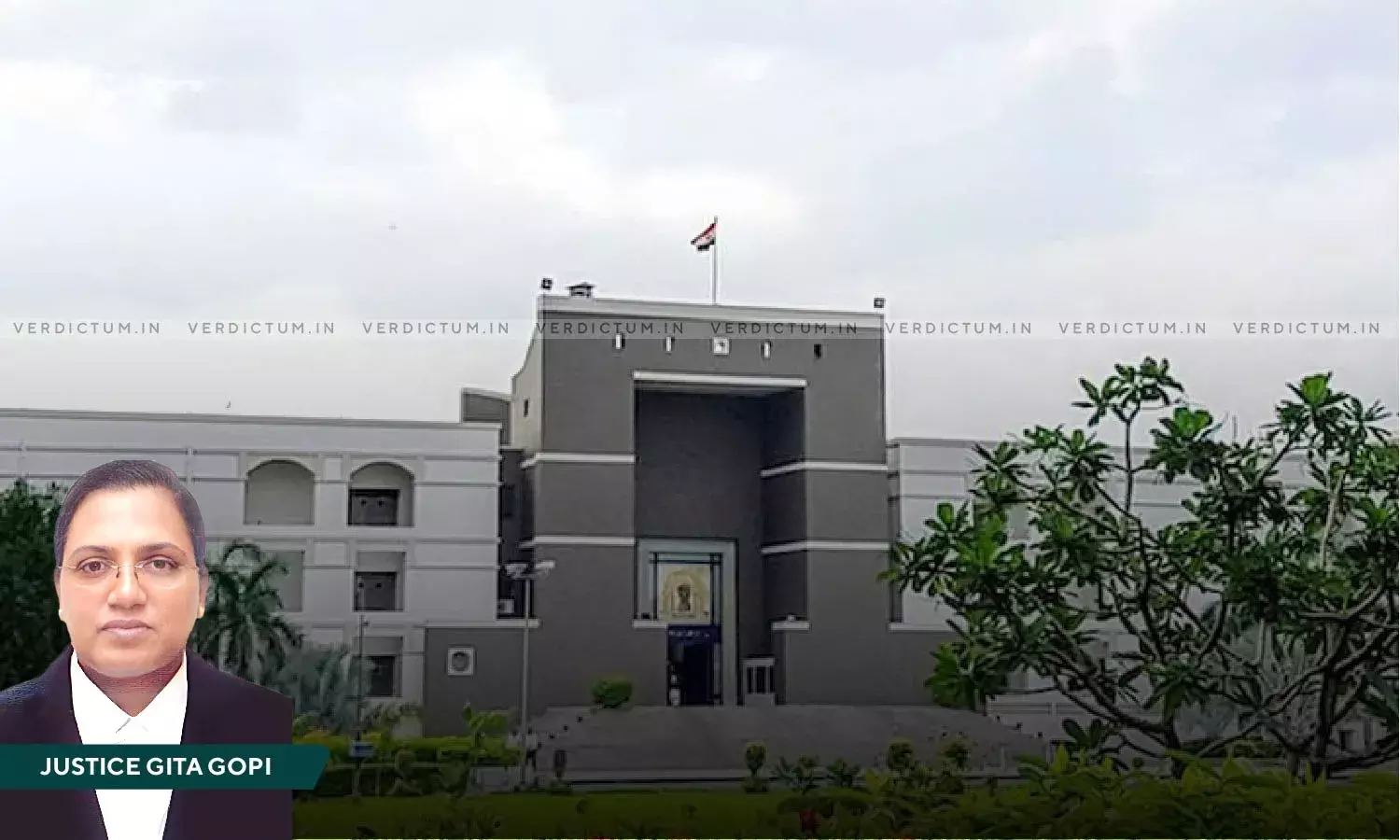To Establish A False Promise To Marry Its Maker Should Have Had No Intention To Uphold It At The Time Of Giving It: Gujarat HC

Justice Gita Gopi, Gujarat High Court
The Gujarat High Court acquitted the accused in a case of false promise to marry, under Section 375 of the Indian Penal Code (IPC). The Court emphasized that, in order for the false promise to marry to be considered, the promisee must have no intention of upholding the promise at the time the promise was made.
Th Bench of Justice Gita Gopi noted, “To establish a false promise, the maker of the promise should have had no intention to uphold it at the time of giving it. The consent under Section 375 of the IPC is vitiated on the ground of misconception of fact…Since the complainant was married, she would have no intention to marry the applicant nor the applicant could have given any promise to marry her”.
The Court noted that the sex between the Petitioner and Respondent was consensual, and therefore did not fall under the definition of rape. In this context, the Court held, “In view of the facts as emerging between the parties, no case is made out against the applicant- accused and there is no sufficient ground to pursue the case against the applicant-accused”.
Advocate Ashish B Desai appeared for the Petitioner, Advocate Divyang A Ramani appeared for Respondent no. 2 and Additional Public Prosecutor Jirga Jhaveri appeared for the State/ Respondent no. 1.
The Petitioner and Respondent No. 2 were in a relationship, even though Respondent no. 2 was married at the time. The Petitioner, allegedly, disclosed the information regarding their relationship to Respondent no. 2’s husband (husband) which led to her husband divorcing her. The relationship between the Petitioner and Respondent no. 2 continued after the divorce but the Petitioner refused to marry Respondent no. 2. After that Respondent no. 2 filed a complaint, alleging that the Petitioner had deceived her with a false promise to marry. The Petitioner filed a discharge application before the Sessions Judge seeking to quash the case against him but the Sessions Judge dismissed his application. The Petitioner then filed a petition before the High Court against the impugned order of the Sessions Court.
Additionally, the Court placed reliance on the judgment in the case of Deepak Gulati v State of Haryana ((2013) 7 SCC 675), wherein the Supreme Court analysed the expression 'consent' and described the distinction between mere breach of promise and a false promise to marry.
The Court asserted, “Here according to the complainant, she had consented for the relationship on the promise of marriage. Section 90 of the IPC clarifies that consent based on misconception of fact is not consent at all and it is the contention of the complainant that the applicant had engaged in sexual relations with her on the false promise of marriage and therefore, the complainant’s consent based on misconception of fact, i.e. promise of marriage, stands vitiated”.
Additionally, the Court held, “The complainant was very well knowing the pros and cons of the relation. It is not the case that false promise of marriage was given at the early stage, the complainant was aware of the nature and consequence of sexual indulgence”.
Accordingly, the Court quashed the impugned order of the Additional Sessions Judge and discharged the Petitioner.
Cause Title: Rohit Dinanath Ray v. State of Gujarat

